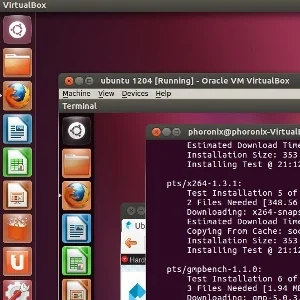Intel Engineer Proposes Software-Based KVM Protected Memory Extension

The proposed KVM protected memory extension is a software-based solution for protecting guest memory from unauthorized host access, at least in partial form. This prevents the host kernel from accidentally leaking guest data, host user-space access to guest data, and similar solutions. But unlike Intel MKTME and AMD SEV, this does not provide full protection against the host kernel being compromised or hardware-based attacks.
Basically this KVM protected memory extension would offer some additional safeguards in a virtualized environment but not as thorough as the modern hardware-based protections.
Currently this KVM extension is being proposed under a "request for comments" flag and the patches knowingly need further improvement before any potential mainlining. More details on this security proposal via this kernel mailing list thread by Intel's Kirill Shutemov.
8 Comments

